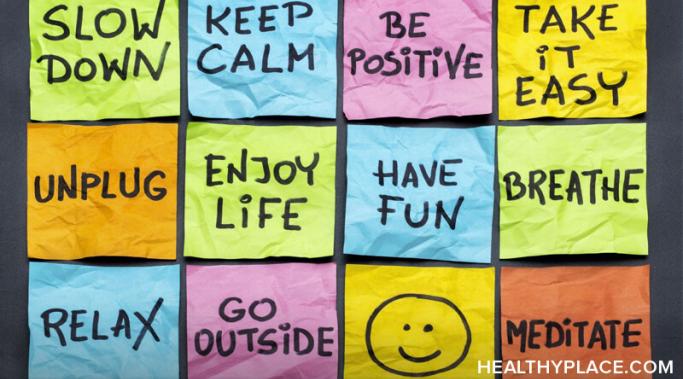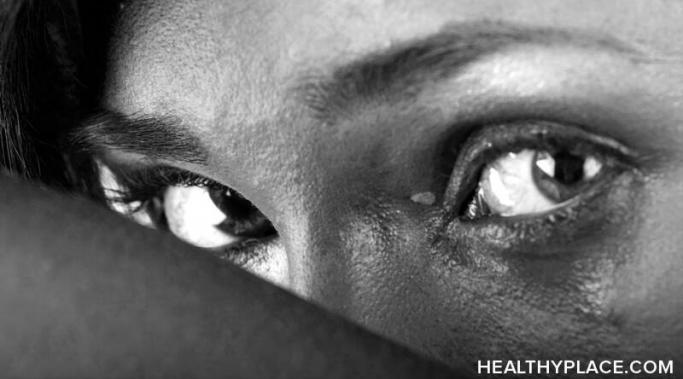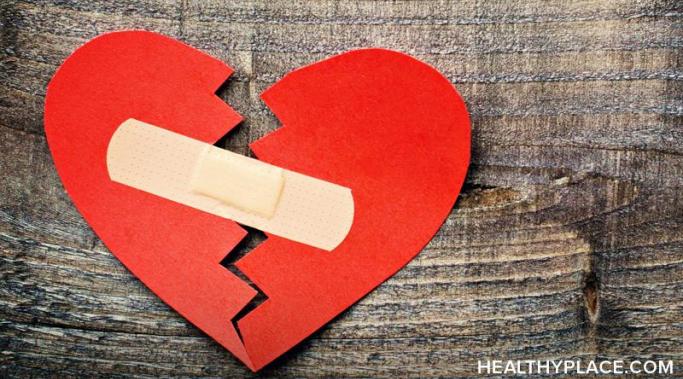Love is a powerful force, but when it comes to loving someone with mental illness, we have to think about how to love through a different lens. We all likely have seen this type of story before where someone with mental illness or trauma falls in love, finds happiness, and suddenly all pain and hardship disappears for good. These stories put the emphasis on the partner as some type of savior, valiantly rescuing a "broken" person through the power of love. These savior stories create unrealistic expectations of what it's like to love people with mental illnesses as if the right person can rescue them from their darkness and pull them back into the light.
Friend Relationships
Juliana Sabatello
Juliana Sabatello
Unsolicited mental health advice can contribute to the judgment and stigma we face as people with mental illnesses, even when it comes from a place of good intentions. Opinions about what we should or shouldn't do for our mental health can come off as judgmental, especially when those opinions minimize the time, effort, and research we have put into our choices.
Juliana Sabatello
Anxiously overthinking a social interaction is a common event. We all have likely experienced a time when we couldn't stop ruminating over a conversation we had, thinking about everything we said or what we could have said differently. For those of us with anxiety disorders, this anxious overthinking can spiral out of control, affect our social lives, and even make our anxiety worse. I personally have a problem with overthinking. I often ruminate on these questions: Is that person mad at me? Did I say something wrong? Did I talk too much? Should I have said something different? Maybe these thoughts as familiar to you as they are to me.
Juliana Sabatello
Feeling shame in a relationship can begin a cycle of shame that's debilitating to mental health. An ex-boyfriend once told me I was a liability. My mental health was a risk against his future, and he didn't want his professional friends to know that he dated me. He made it clear that he was ashamed of me.
Having a relationship with a person with borderline personality disorder (BPD) tends to be thought of as a tumultuous endeavor. In my opinion, there continues to be an immense stigma and misunderstanding around mental illnesses in our society. However, when it comes to personality disorders, such as borderline personality disorder, this stigma can be much more intense. Sadly, I have seen how the chronicity of personality disorders has led to a resistance to treat, even among mental health professionals. Yet, those diagnosed with personality disorders have the capacity to create a life worth living and are worthy of all available and effective treatment. I currently work with individuals diagnosed with borderline personality disorder and have found therapeutic interventions to be very rewarding, especially when it comes to interpersonal effectiveness and relationships.
I am currently using opposite action to save my social life. Learn how opposite action, a dialectical behavior therapy (DBT) skill, is helping me.
There is no denying that nearly all mental health diagnoses are shrouded in stigma and pejorative views. When it comes to addiction and substance use disorders, this stigma has the potential to take on a dangerous form. From my experience, those grappling with addiction rarely receive adequate social sympathy, and this lack of support has the potential to exacerbate symptoms. In fact, research shows that those who experience stigma are less likely to seek out treatment for their substance use. As someone who has struggled with addiction, I can assure you that there are right, and overtly wrong, ways to communicate with someone who is dealing with addiction.
Do you have phone anxiety? In our current society, there are nearly endless forms of communication. With these new forms of communication comes new anxiety. After all, there is no denying that a lot can be lost in translation when communicating via technology, as opposed to catching up with someone face-to-face. Add a dash of generalized anxiety disorder into the mix, and this phone anxiety can skyrocket and become nearly unbearable. Here are some ways that I have learned to cope with phone anxiety.
Sexual harassment is a topic I discuss with a new friend from school. On Monday nights, we take the train home from class together. We get out late, after nine o'clock.
It was not until I experienced a loss that I felt like I truly knew how to support a grieving friend through the grief process. Grief is inevitable and life is riddled with loss, whether it be in the form of death or a devastating breakup. Therefore, there is going to be a point in your life where you are going to be the shoulder to lean on. There are appropriate ways to help someone who is going through a hard time and there are inappropriate ways (such as not being there for someone at all). Here are some helpful hints for supporting a grieving friend.









